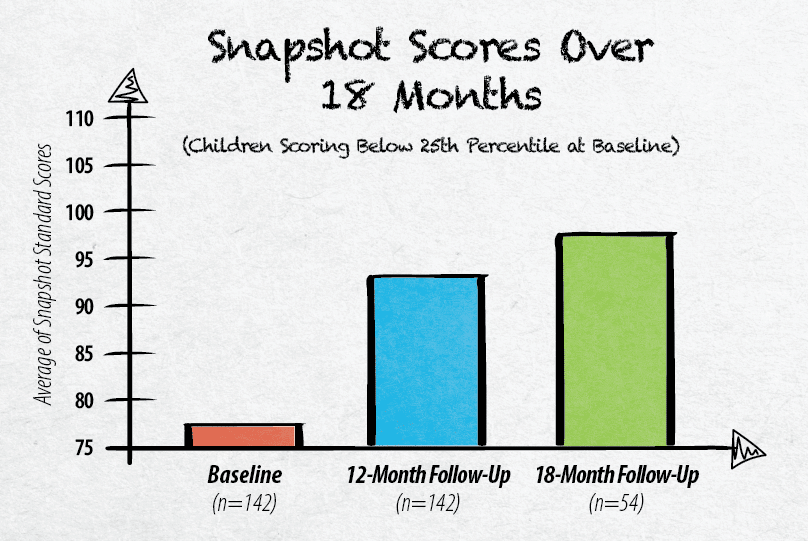A paper published in the journal Child Development proposes that some children’s books may be more effective at stimulating cognitive development than others.
When caregivers in the study read books to 6- to 12-month-old babies that contained specific labels for objects and characters (like “palm tree” or “Paul”) the children learned to use labels to categorize the world around them more effectively than children who heard stories from books with generic labels.
“The learning reported here suggests that infants exhibit a profound ability to use labels to build perceptual and conceptual representations to direct attention,” the paper concludes.
In an article on TheConversation.com, researcher Lisa Scott added that the positive effects seen could be the result of the increased interactions with parents, rather than the books themselves:
“It’s possible that books that include named characters simply increase the amount of parent talking. We know that talking to babies is important for their development. So parents of infants: Add shared book reading to your daily routines and name the characters in the books you read. Talk to your babies early and often to guide them through their amazing new world – and let storytime help.”
Read the summary article at TheConversation.com or the full study in Child Development.
Fathers can have a unique and positive effect on children’s literacy skills, according to new research published in Academic Pediatrics. A longitudinal study from Australia found that four-year-olds whose fathers read to them as toddlers had better language and literacy skills than children whose fathers did not.
“Fathers will generally talk to, but not expand on the text too much, instead giving children the building blocks to expand on their stories themselves,” researcher Dr. Jon Quach explained.
The positive effects remained even when researchers controlled for mothers’ reading contributions.
Read the summary article at Heraldsun.com or the full study in Academic Pediatrics.
One of the first large-scale studies to investigate how electronic media affects young children’s sleep quality found that children who consume electronic media experience worse sleep quality. Longitudinal data showed a relationship between children’s electronic media use and increasing bedtime resistance, sleep anxiety, and daytime sleepiness.
Rather than watching TV or playing on a tablet before bed, try reading, suggest experts interviewed about the study.
“Books at night may not be innately beneficial for sleep, but compared to using screen-based media, they present an alternative that is not disruptive to sleep health,” preventive medicine professor Lauren Hale explained.
Read the summary article at Reuters.com or the full article in Sleep Medicine.





